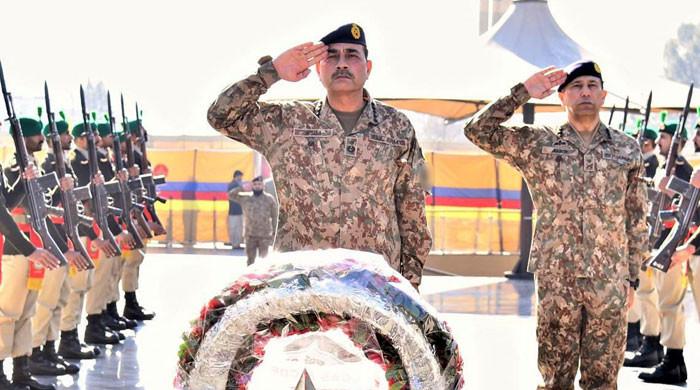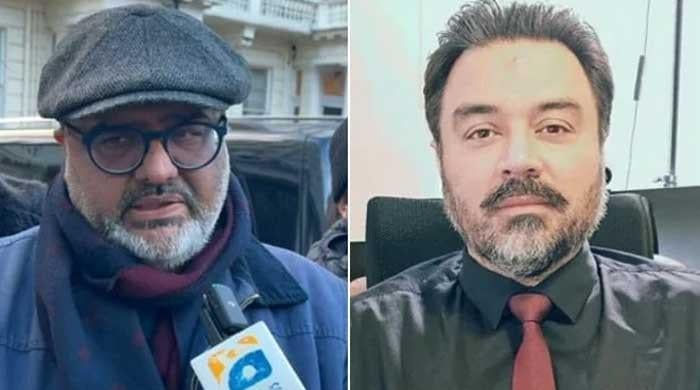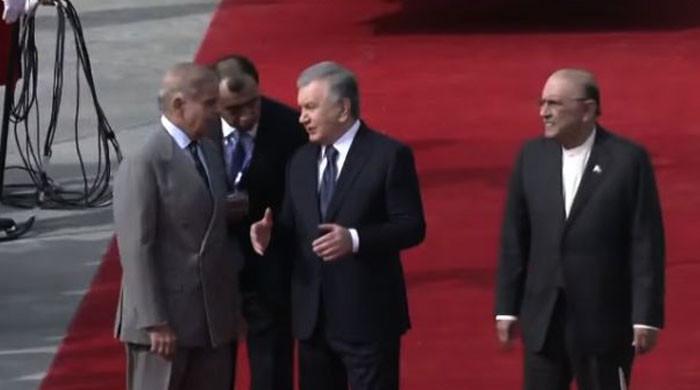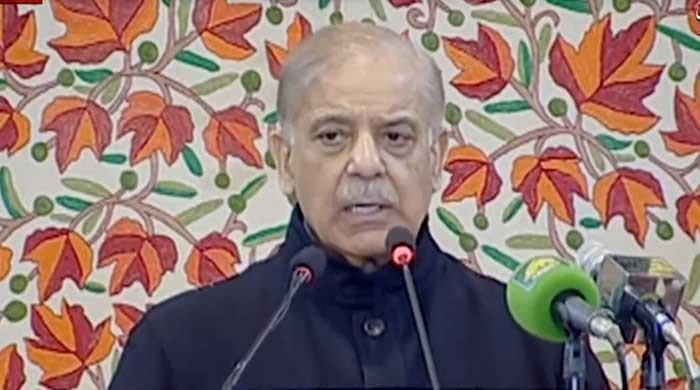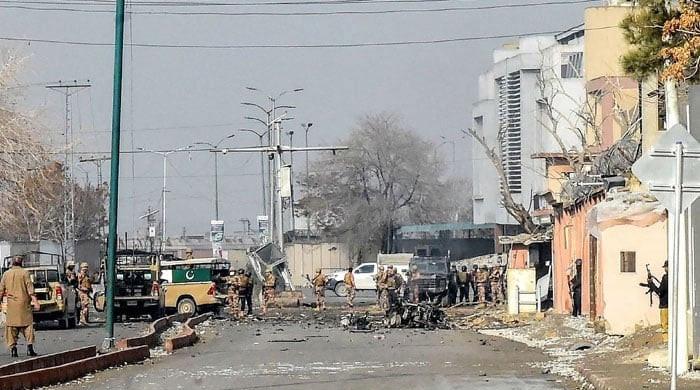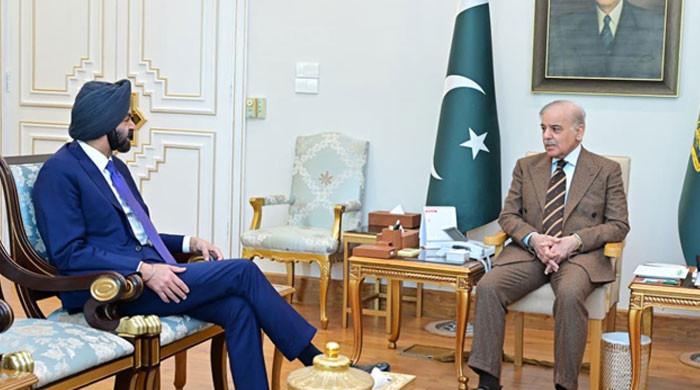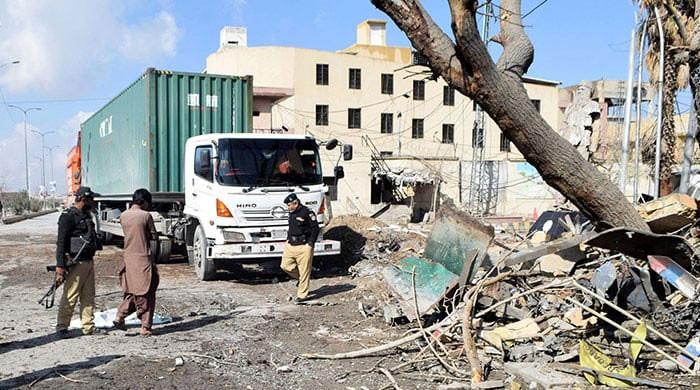Trump credits 350% tariff threat for preventing Pakistan-India nuclear disaster
US president says Indian PM Modi called him after talks, saying “We’re done, we’re not going to war”
November 20, 2025
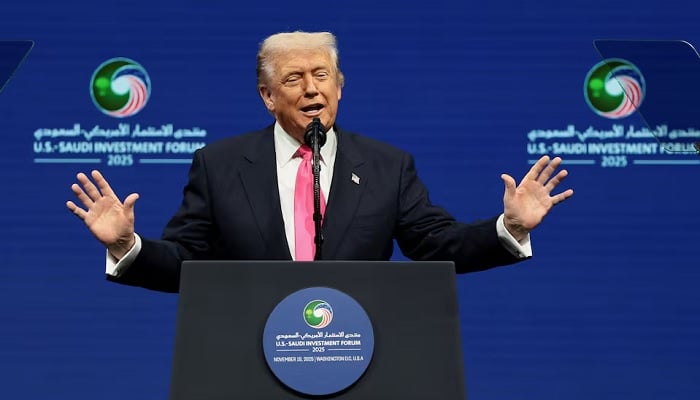
- Trump says he averted likely nuclear clash using economic pressure.
- Says PM Shebaz called to thank him, saying Trump “saved millions.”
- Notes five of eight global conflicts were settled because of trade.
In a special address at the Saudi investment conference on Wednesday, US President Donald Trump once again claimed he stopped a nuclear war between Pakistan and India — a crisis he says could have killed “millions.”
Trump expressed these views with a familiar boast about being able to settle disputes, before drifting into an anecdote about how he handled what he described as an imminent armed clash in South Asia.
According to Trump, both countries were “going to go at it, nuclear weapons,” and he said he had warned them that Washington would slap a massive tariff if they moved ahead.
“I said that’s okay, you can go at it, but I’m putting a 350% tariff on each country,” he told the audience, adding that he refused to “have you guys shooting nuclear weapons at each other, killing millions of people, and having the nuclear dust floating over Los Angeles.”
He said leaders in both capitals pushed back, but he claimed he held firm: “They said, ‘We don’t like that.’ I said, ‘I don’t care if you like it or not.’”
Trump then recounted a moment when, as he put it, Prime Minister Shehbaz Sharif called him to acknowledge the intervention.
“He actually said, ‘I saved millions,’” Trump told the room, adding that the praise was repeated “in front of Susie,” a reference to one of his longtime advisers. “He said, ‘President Trump saved millions and millions of lives.’”
The US president also said he received a call from Indian Prime Minister Narendra Modi shortly afterwards.
“I got a call… saying, ‘We’re done,’” Trump claimed. “We’re not going to go to war.”
For Pakistan, the remarks stand out not only because of the nuclear angle but because Trump rarely speaks so directly about his dealings with Islamabad.
The speech eventually swerved to other matters — including Sudan — with Trump saying Crown Prince Mohammed bin Salman had urged him to take on a dispute he “didn’t think was going to be so easy to do.”
“He said, ‘Yeah, thank you. Thank you to you,’” Trump remarked, explaining that it wasn’t even on his “charts” but that he would now “start working in Sudan.”
Still, the heart of his address kept returning to the same claim: that he used economic pressure — tariffs, mostly — to shut down conflicts.
“Five of the eight were settled because of the economy, because of trade,” he said, insisting that no other US president would have used the same approach.
This is not the first time President Trump has bragged about stopping the war between two nuclear-armed South Asian rivals. It was actually the second time during Saudi Arabia Crown Prince Muhammad Bin Salman's visit alone, when he mentioned his "peacekeeping".
Addressing a joint press conference along with MBS, who is visiting the US for the first time in seven years, at his Oval Office, Trump said: “I've stopped eight wars... I've actually stopped eight wars.”
Expressing pride in halting eight wars across the globe, the US president on Wednesday claimed that he stopped a war from “restarting” between Pakistan and India.
Earlier this year, the two nations engaged in a military showdown, the worst between the old foes in decades, which was sparked by an attack on tourists in Indian Illegally Occupied Jammu and Kashmir's Pahalgam area, which New Delhi alleged was backed by Pakistan.
Islamabad denied involvement in the Pahalgam attack, which killed 26 men and offered to participate in a neutral probe into the deadly incident.
During the clashes, Pakistan downed seven Indian fighter jets, including three Rafale, and dozens of drones. After at least 87 hours, the war between the bitter rivals ended on May 10 in a ceasefire agreement brokered by the US.
The US president, during a White House media briefing last month, had said Prime Minister Shehbaz Sharif credited him with preventing a catastrophic nuclear war with India that could have killed millions.
Trump asserted he had halted eight wars, including recent Gaza breakthrough, and is pushing to end the Ukraine conflict.
He also highlighted his broader diplomatic record. “Eight wars stopped in nine months — Pakistan-India, Israel-Iran, Rwanda-Congo, Ethiopia-Egypt, Armenia-Azerbaijan, and now Gaza. I’m working on Ukraine next,” he had said, touting his mediation of a Gaza deal that saw 20 Israeli hostages freed and 2,000 Palestinian detainees swapped.





